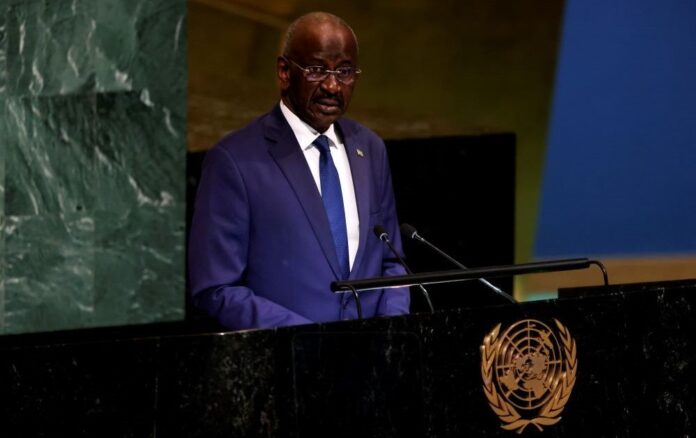LONDON: Mauritania’s foreign minister on Monday urged the international community to cancel foreign debt for African nations amid the intensifying global financial crisis.
In a speech to the UN General Assembly in New York, Mohamed Salem Ould Merzoug also asked for support for the Sahel region in countering terrorism.
He thanked Secretary-General Antonio Guterres for his “diligent efforts aimed at promoting the UN and bolstering its role” amid “very difficult and complex international conditions.”
Merzoug highlighted a perfect storm of issues, from the Russia-Ukraine conflict to the COVID-19 pandemic, terrorism and climate change-related natural disasters, noting how these events are placing disproportionate pressure on poorer countries, especially in Africa.
“These crises, and the economic, social and humanitarian repercussions of them, are unprecedented,” he said, adding how, for instance, the Russia-Ukraine conflict has affected food and fuel supply lines to developing countries.
He praised the international community for work on securing agreements for the shipment of grain through the Black Sea, but called for “ramped up efforts to find solutions that would guarantee peace, security and dignity for all the peoples of the world,” which, he said, should include canceling African debts.
“The Islamic Republic of Mauritania calls upon the international community to fulfil its responsibilities to developing and poor countries, to assist them as quickly as possible to address the challenges threatening their food security as well as to counter other negative effects of these crises,” he said.
Merzoug added that Mauritania has made progress across a raft of issues, including “re-establishing the values of justice, equity, democracy, individual and collective freedoms, the freedom of the press, and the adoption of dialogue and consultation to manage government affairs with participation by civil society.”
He highlighted the country’s efforts to protect human rights by combating human slavery and child trafficking, as well as illegal migration.
He also discussed government programs to support the poor and youngest in society by building schools and medical centers, and providing clean water.
“We have prepared programs to train youth and to empower youth so that they will be positive elements when joining the labor market. We have also worked to promote women’s participation in political life,” he said.
Merzoug added that Mauritania has taken in and provided assistance to 85,000 refugees from neighboring Mali, but called for greater efforts to resist instability and terrorism in the region.
“Mauritania has always taken care to establish an interlocking approach to combating terrorism in all its forms,” he said.
“We believe that the countries of the Sahel represent a key force to resist terrorism and to establish development throughout the region. Here, we call for support for this group of countries as we move and overcome those obstacles they face today.”
Merzoug reiterated Mauritania’s commitment to the environment and renewable energy, saying the country is focused on sustaining 40 percent of its power from “clean, renewable” sources.
He added that Mauritania will make the most of its “enormous natural resources” in wind and solar potential to expand this weighting in the future.
“We have achieved significant results in our efforts to address desertification through agricultural reforms in those areas that have been affected by droughts,” Merzoug said.
“We are looking to improve our use of water resources and to protect biodiversity. Here, we are very hopeful about COP27, which is to be held in Egypt from Nov. 6-18, and we hope that all states will respect their commitments there.”
Merzoug emphasized his country’s support for the “sovereignty and dignity” of the Palestinian people, calling for a “political solution that maintains Palestine’s territorial integrity and independence.”
He also called for support for the “legitimate powers” in Mauritania’s “brother country” of Yemen, adding: “We call for a peaceful solution.”

